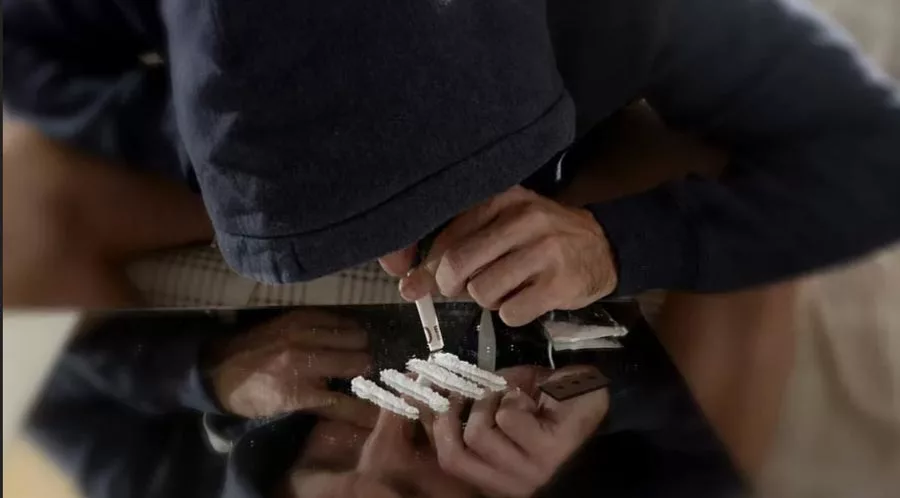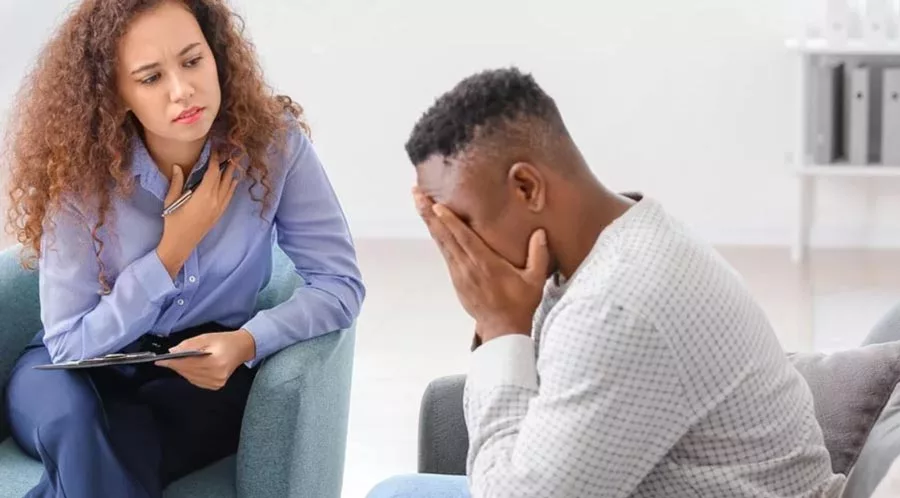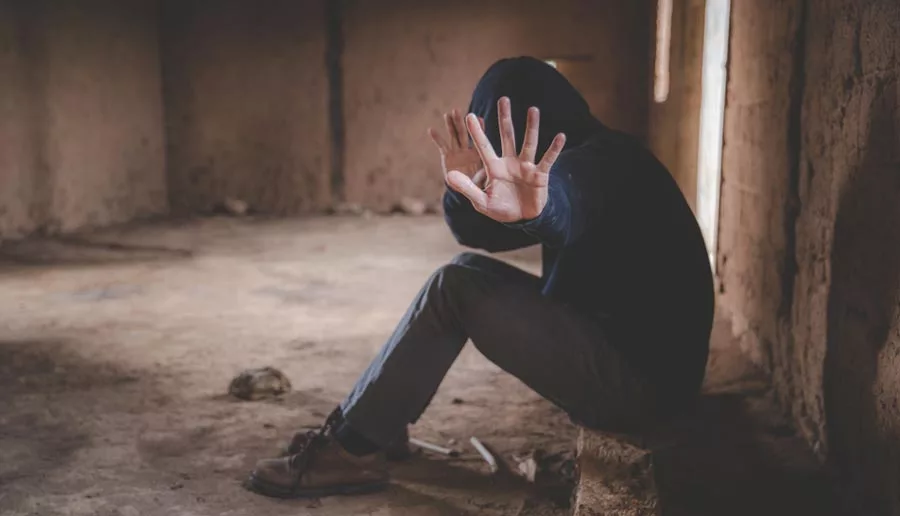Is Cocaine Psychosis Common?
Cocaine is a highly addictive stimulant drug made from the leaves of the coca plant. A common slang name for the smokable form of the substance is crack. Cocaine is addictive because it activates dopamine, which is a chemical in the brain that produces feelings of pleasure. Over time, people who use cocaine develop tolerance to it, which means they need more of the drug to get high. They also become addicted as their bodies adapt to cocaine’s effects.
Cocaine psychosis occurs when the substance begins to create mental health symptoms, up to and including hallucinations and delusions, self-harm, and extreme paranoia.
If you suspect that you or a loved one may be struggling with a cocaine addiction, keep reading to learn more about this condition, the debilitating associated phenomenon known as cocaine-induced psychosis, and what can be done about it with our help at South Shores Detox!
The Cocaine Abuse Epidemic
The world is currently in the middle of what can only be described as a substance abuse epidemic. The rate of drug abuse and the severe, often fatal, consequences of it continue to rise exponentially each year. According to the CDC, in 2019, 1 in every 5 overdose deaths involved cocaine use. In fact, in 2020, over 2% of the population reported cocaine use; a troubling statistic.
The Signs of Cocaine Use

If you’re concerned that a loved one may be using cocaine, it is important to be aware of the major signs that suggest it. Cocaine use can be identified through a mixture of overt physical signs, as well as more subtle behavioral changes. Read on to discover some of the more common signs.
The short-term effects of cocaine use include increased energy and alertness, decreased appetite, and increased blood pressure, heart rate, and body temperature. These effects soon give way to feelings of euphoria followed by depression and exhaustion. Long-term effects include paranoia, sleep problems, mood swings, irritability, tremors, and twitching muscles (crack binges).
Some other Signs of cocaine use include:
- Changes in behavior (becoming more secretive or erratic)
- Physical changes (weight loss)
- Lack of appetite for food or sleep; weight loss
- Nausea and vomiting
- Muscle twitching in arms and legs
- Dilated pupils
The Link Between Mental Health and Cocaine Dependence
Many cocaine users also experience mental health conditions because they suffer from underlying psychiatric conditions such as schizophrenia or bipolar disorder. The National Library of Medicine notes that only around 4% of chronic cocaine users do not experience a mental health disorder.
In addition to these underlying factors, there is also some evidence that suggests cocaine may trigger certain psychiatric disorders in some individuals. A study published in The Journal of Clinical Psychiatry found that young adults who used cocaine were more likely to develop cocaine-induced, co-occurring disorders compared with those who didn’t use it.
The researchers noted that this could be due to the fact that cocaine users tend to drink more alcohol than nonusers — another one of the larger risk factors for a mental health disorder — or because cocaine itself might cause changes in the brain chemistry associated with mood disorders.
Cocaine Long-Term Effects
Cocaine is one of the most addictive substances one can develop an addiction to and, long-term use virtually guarantees an increased risk of experiencing debilitating physical and psychological symptoms. The long-term effects of chronic cocaine use are similar to those associated with alcohol but more severe. Long-term cocaine use may cause the following:
- Cognitive impairment. This may include problems with memory and attention span, as well as difficulty concentrating.
- Depression and anxiety. These can occur during withdrawal from the drug or after long periods of heavy use.
- Heart disease, stroke, and high blood pressure. These conditions can be fatal if untreated, but they also respond well to treatment if caught early enough.
- Sexual dysfunction in men and women.
What Is Cocaine Psychosis?

Now we get to one of the major points of this piece; the phenomenon of substance-induced psychosis. What exactly is cocaine psychosis? It is a psychiatric emergency that may occur after the use of cocaine. It typically develops within a few hours to several days after the last use of cocaine (although it can also occur after repeated use) and is characterized by hallucinations and delusions, paranoia, and agitation.
The key takeaway here is that cocaine use is the thing that can trigger psychosis. The symptoms of psychosis can persist for days or weeks after stopping the use of the drug. These psychotic symptoms are not caused by schizophrenia, but they do resemble those of schizophrenia in their severity and duration.
What are the Signs of Cocaine Induced Paranoia and Psychosis?
Cocaine-induced psychotic episodes are rare; however, they can be fatal if not treated properly. Some of the more common psychosis symptoms experienced with this condition are:
- Delusions: False beliefs that do not conform with reality; for example, believing that someone is trying to harm you or control your thoughts when there is no basis for this belief.
- Hallucinations: Seeing or hearing things that are not there; for example, seeing someone who isn’t really there or hearing voices telling you what to do.
- Paranoia: Cocaine-induced paranoia is one of the major symptoms of this condition. The user may experience paranoia. Paranoia is defined as an irrational feeling of distrust and suspicion, often accompanied by delusions and hallucinations.
Professional Treatment for Cocaine Induced Psychosis
Ultimately, a professional treatment program for this specific aspect of cocaine addiction amounts to treating the addiction itself. By treating the overall substance use habit, the risky behaviors, disordered thinking, and cocaine-related dangers that would have been responsible for the psychosis may be properly addressed.
Those who experience psychosis really do experience a unique type of trauma. This is why comprehensive treatment plans are necessary.
What Treatment Methods Are Effective for Psychotic Symptoms?

Effective forms of cocaine treatment can include:
Treatment for cocaine-induced psychosis may include:
- Psychiatrists and psychologists. These mental health professionals can help you understand the problem, recognize the symptoms, and find treatment. They also can provide medications to treat the condition. At most treatment facilities, there is the presence of a clinical pharmacy specialist who is equipped and qualified to administer and dispense medications that will help with the addiction, underlying mental health conditions, as well as psychotic symptoms.
- Inpatient treatment facilities. Patients with cocaine-induced psychosis sometimes need intensive treatment in a hospital or residential facility during the first few days of their episode to help them cope with their symptoms and stabilize their condition. Aside from this, in general, inpatient treatment can be beneficial to treating the withdrawal symptoms experienced by cocaine addiction. Inpatient treatment also may be necessary if they have problems with self-care or safety that make it difficult for them to stay at home or in outpatient treatment centers.
- Outpatient counseling and support groups. Some people benefit from regular therapy sessions with counselors who specialize in treating substance abuse disorders and other conditions that affect people’s thoughts and feelings (psychologists). Others may find support groups helpful for recovering from cocaine-induced psychosis (for example, support groups).
Get Treatment for Cocaine Today at South Shores Detox!
Whether you or a loved one are struggling with cocaine addiction or have experienced cocaine psychosis, at South Shores, we are here to help. Remember that addiction is a mental health disorder and so, deserves all the empathy, patience, and expertise associated with curing any physical condition.
Our expert and experienced team is standing by, ready to help you take the next step at our fully equipped and accredited treatment facility. Don’t hesitate to reach out to us today!

